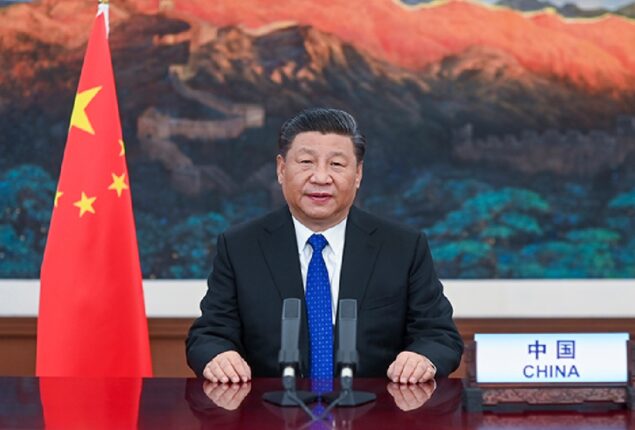Meta threatens US content news if laws passes
Meta has said that it might take news stories off of Facebook...

China’s Xi to take a trip to Saudi Arabia
According to a source with knowledge of the trip, an Arab diplomatic source, and two senior Arab officials, Chinese President Xi Jinping is scheduled to arrive in Saudi Arabia on Thursday for a two-day state visit despite the high level of animosity between the United States and the two nations.
According to the four sources, Xi’s trip to Riyadh would include a China-GCC meeting and a China-Arab summit.
According to the Arab diplomatic source who called the visit a “milestone” for Arab-Chinese relations, at least 14 heads of state from the Arab countries are anticipated to attend the China-Arab summit.
Due to their lack of authorization to speak to the media, the sources spoke on the condition of anonymity.
Although there have been rumours of a Chinese president visiting the US’ biggest Middle Eastern ally for months, neither the Saudi Arabian nor the Chinese governments have officially acknowledged them.
Beijing hasn’t formally declared that Xi would go to Saudi Arabia.
Without confirming the precise dates, the Saudi authorities this week distributed registration papers for journalists to cover the summit. In response to a request for information regarding Xi’s visit and the scheduled summits, the Saudi authorities chose not to provide any.
The news of the long-awaited visit comes amid a number of US tensions with Beijing and Riyadh that, much to Washington’s dismay, have only strengthened ties in recent years.
The Saudi-led oil cartel OPEC+ cut output by two million barrels per day in October in an effort to “stabilise” prices. This sparked a heated dispute over oil production between the US and Saudi Arabia that is still ongoing. The choice was made despite a vigorous US opposition campaign.
Saudi Arabia, a steadfast friend of the United States for eight decades, has grown resentful of what it sees as a diminishing US security presence in the area, particularly in light of rising threats from Iran and its armed proxies in Yemen.
The US and China, the two largest economies in the east, have been at differences over Taiwan, which US President Joe Biden has frequently promised to defend should China invade. The sensitive subject has seriously strained relations between Washington and Beijing, which are already vying for sway in the tumultuous Middle East.
China has been strengthening its connections with Gulf monarchies as well as with US adversaries Iran and Russia, while American allies in the Arab Gulf accuse Washington of lagging behind on its security commitments in the region.
Regarding the conflict in Ukraine, China and Saudi Arabia have both adopted positions that differ from those of the West. Both parties have abstained from supporting sanctions against Russia, and Riyadh has insisted time and time again that Moscow is an important energy partner who needs to be involved in OPEC+ decisions. Some US officials have charged Saudi Arabia with siding with Russia and supporting President Vladimir Putin’s assault on Ukraine in the wake of last month’s significant oil supply decrease.
Officials from Saudi Arabia have denied using oil as a weapon or supporting Russia.
In October, Biden stated that the US needs to “rethink” its relationship with Saudi Arabia, which the President appeared to try to mend during a trip to Riyadh in July. In the midst of a global oil scarcity, Biden travelled to Riyadh and gave crown prince and de facto ruler Mohammed bin Salman a public fist bump after threatening to make the country a “pariah” and denouncing him for killing Saudi journalist Jamal Khashoggi.
The ultimately chilly visit only served to heighten tensions while producing no advances in oil output.
Catch all the International News, Breaking News Event and Latest News Updates on The BOL News
Download The BOL News App to get the Daily News Update & Follow us on Google News.